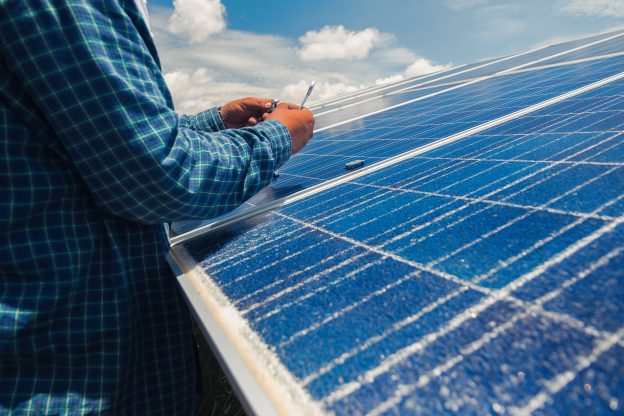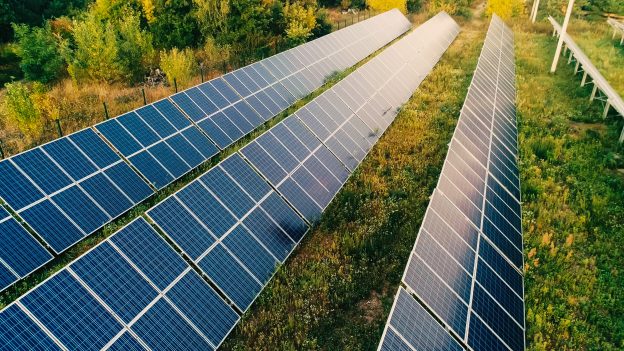Polysilicon
Polysilicon prices have increased slightly this week. The mainstream concluded price for mono recharge polysilicon is RMB 83/KG, while mono dense polysilicon is priced at RMB 81/KG and N-type polysilicon is currently priced at RMB 92/KG, increasing 7.79%, 8% and 8.24%, respectively.
On the supply front, the growth in polysilicon supply remains constrained, and it is currently undergoing a phase of depleting existing inventories. Conversely, on the demand side, orders for the current month have been confirmed, and there are only limited new polysilicon orders signed this week. Furthermore, certain customers are persistently raising their quoted prices, contributing to a slight uptick in polysilicon prices. With polysilicon inventory levels relatively low and the overall supply-demand dynamic still characterized by tension, it is anticipated that polysilicon prices will continue to experience a modest increase in the short term.
Wafer
The prices of wafer have remained stable throughout the week. The mainstream concluded price for M10 wafer is RMB 3.35/Pc, while G12 wafer is priced at RMB 4.35/Pc,.
Looking at the supply side, crystal pulling manufacturers are generally operating at full capacity. In September, a portion of the production capacity for 183.75mm P-type wafers will be shifted to the 182mm size, alleviating the supply constraints for P-type 182mm wafers. Furthermore, the supply of 210mm P-type wafers is ample. On the demand side, there is a positive outlook for the demand for 182mm P-type wafers, which currently maintains a balance in overall supply and demand. However, there remains pressure on the shipments of 210mm P-type wafers and N-type wafers. Presently, wafer inventory levels remain low, but the downstream market is gradually showing signs of slowing down, which could impact the wafer segment. As a result, wafer prices are holding steady for the time being.
Cell
Cell prices have declined slightly this week. The mainstream concluded price for M10 cell is RMB 0.74/W, while G12 cell is priced at RMB 0.73/W. The price of M10 mono TOPCon cell is RMB 0.79/W.
On the supply side, the cell sector maintains a consistently high activation rate, and the capacity for N-type cells is on the rise. However, on the demand side, the rate of growth in N-type cell supply exceeds the growth rate in demand, leading to a gradual accumulation of inventory. As the shipment of lower-efficiency N-type cells faces increased pressure, some companies are reducing their prices to boost shipments, resulting in a slight dip in N-type cell prices. For 182mm P-type cells, the supply and demand equilibrium is relatively stable. Nevertheless, the pressure on module prices is shifting towards the cell segment. Consequently, there are indications that prices for 182mm P-type cells may experience fluctuations.
Module
Module prices have maintained stability throughout the week. The mainstream concluded price for 182mm facial mono PERC module is RMB 1.21/W, 210mm facial mono PERC module is priced at RMB 1.23/W, 182mm bifacial glass PERC module at RMB 1.23/W, and 210mm bifacial glass PERC module at RMB 1.24/W.
Regarding the supply side, module manufacturers are maintaining a stable operation rate, and integrated module enterprises are steadily enhancing their production scheduling capacity. On the demand side, module procurement needs continue to be primarily driven by distributed projects, with indications of a gradual uptick in demand for domestic large-scale ground power station projects. Notably, recent increases in upstream raw material prices have exerted pressure on the module segment. However, thanks to support from the cost side, module prices are currently holding steady.
Auxiliary materials: This week, PV glass prices continue to stay stable. The mainstream concluded price for 3.2mm glass is RMB 26/㎡, while 2.0mm glass is priced at RMB 18/㎡.
The supply of PV glass remains steady, with module companies primarily acquiring glass in accordance with their demand, thus supporting the demand for PV glass. Lately, there has been an upward trend in soda ash prices. While PV glass manufacturers are seeking to raise their prices, module companies are somewhat reluctant to accept these increases. Consequently, the prices of PV glass have stabilized as a result of the negotiations between PV glass manufacturers and module enterprises.
Polysilicon Price Increases Slightly while Cell Price Shows Signs of Fluctuation |
| published: 2023-09-07 17:14 |







